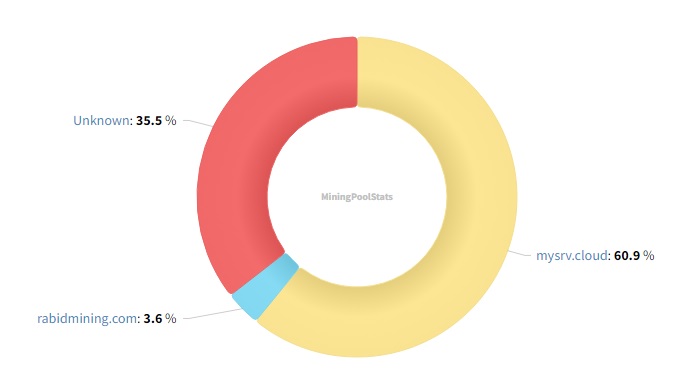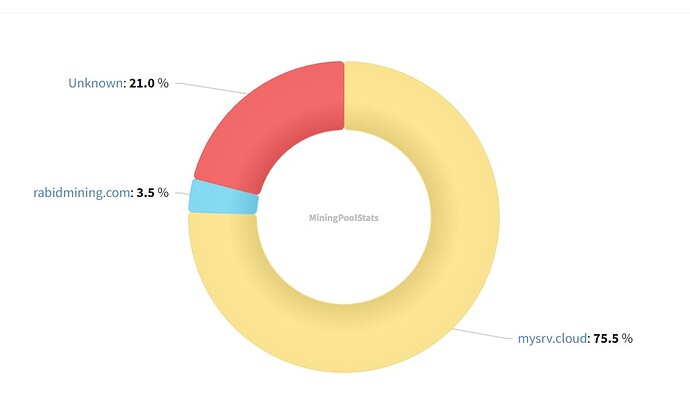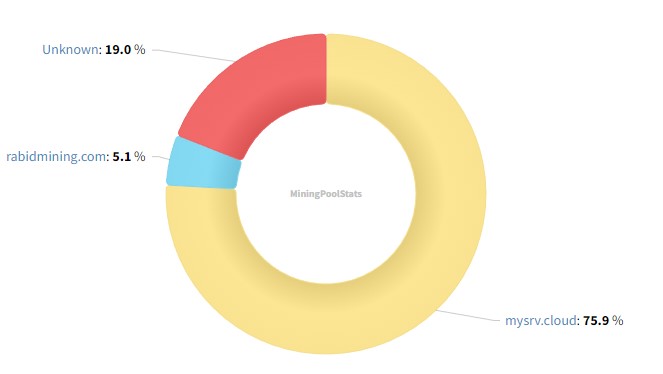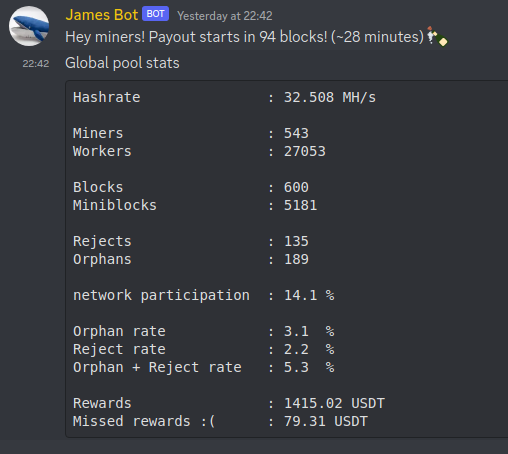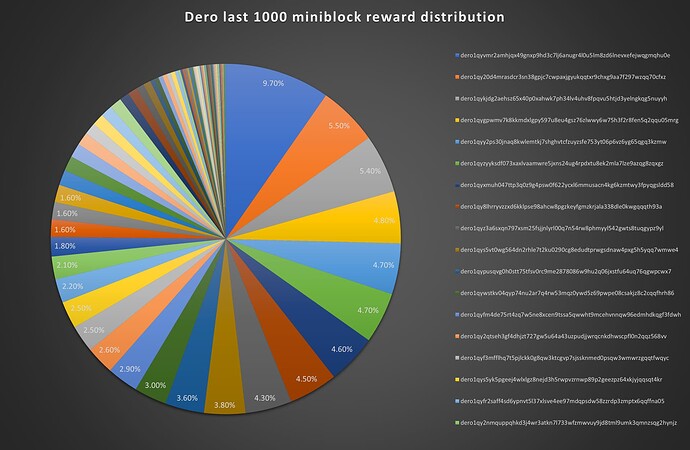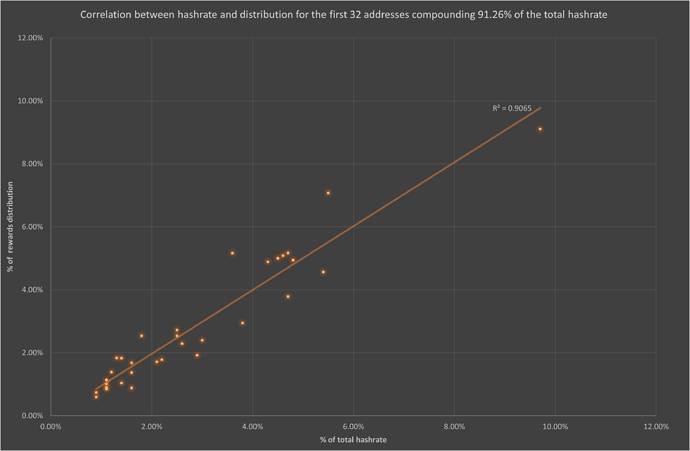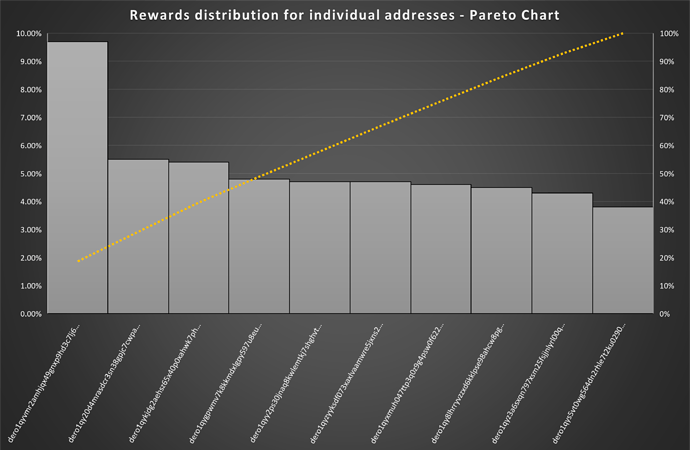Greetings DERO fam,
I am a long-term DERO enthusiast / holder / dreamer and a solo miner here like many of you, mining since 2018. When I first heard about the Stargate update, I thought that DERO will be a true unstoppable private protocol and the team have managed to foolproof it’s path, a few months later it seems that started to crack like a sheet of thin ice.
Gradually and naturally the network hash rate has increased over the last 6 months at a scale of 600% (back from ~50mh to 300+mh)
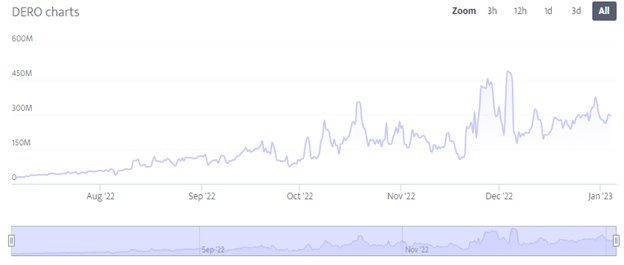
The solo miner rewards decreased at a far much faster phase, for each shrimp miner (3kh/s) the rate decreased from ~2.3h to find a block to ~47h to find a block, that’s a 2000% difficulty increase for only a 600% network hash rate increase you might find interesting.
What happened in the meantime?
I saw a large number of miners complaining about the rewards distribution and pools tapped in what was supposed to be the best decentralized network, undoubtfully compromising it.
In the last 30 days of observing the rewards distribution, things really got out of hand. Right now, there are 3 pools tapping in the DERO:

whalesburg.com, mysrv.cloud and rabidmining.com, all of them combined make about 1/3 of the network hashrate. The surprise kicks in when looking at the miner rewards distribution:
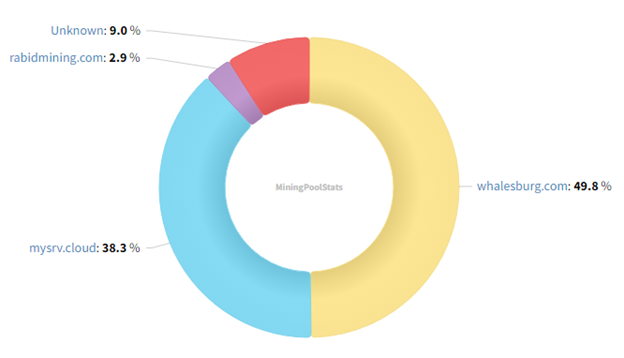
Less than 10% of the rewards are ever distributed to the solo miners, which are responsible for 2/3 of the hashing power on which the DERO runs.
That might tempt a solo miner to dial down on decentralization and to choose to mine through a mining pool, but the reality is that mining pools are actually rewarding less than what you can get trough solo mining. I throwed a shrimp miner at each of the pools (3kh/s miners) and the pools rewarded 1.3 / 1.2 / 1.1 DERO whereas a solo shrimp miner produced 1.44 DERO for the last 30 days. Just to clarify. at the current hash rate a fair reward for a 3kh shrimp would be at around 5 dero/30 days.
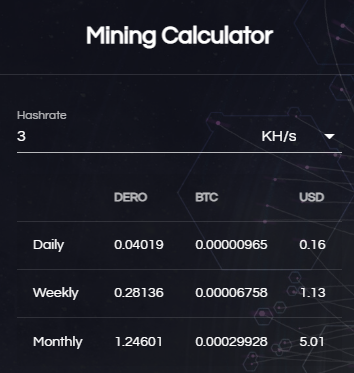
So, pools are eating away 90% of the rewards and they distribute to their users 10 to 15% of what they get. Sadly, this is the reality we live in and the once bright, fair, decentralized dream we shared is compromised.
Upon concluding, there is no point to waste energy to enrich a few pockets, my miners are plugged out until the project gets fair again to the hard-working miners that are running the network.
